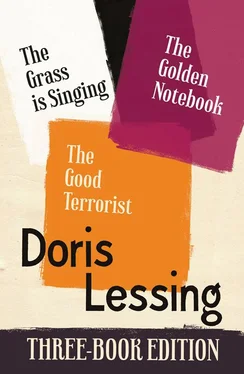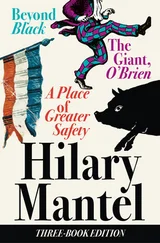Tony Marston appeared uncomfortable, as if he did not know his own mind. And for that matter he did not: the weeks in the Turners’ household with its atmosphere of tragedy had not helped him to get his mind clear. The two standards – the one he had brought with him and the one he was adopting – conflicted still. And there was a roughness, a warning note, in Charlie’s voice, that left him wondering. What was he being warned against? He was intelligent enough to know he was being warned. In this he was unlike Charlie, who was acting by instinct and did not know his voice was a threat. It was all so unusual. Where were the police? What right had Charlie, who was a neighbour, to be fetched before himself, who was practically a member of the household? Why was Charlie quietly taking command?
His ideas of right were upset. He was confused, but he had his own ideas about the murder, which could not be stated straight out, like that, in black and white. When he came to think of it, the murder was logical enough; looking back over the last few days he could see that something like this was bound to happen, he could almost say he had been expecting it, some kind of violence or ugliness. Anger, violence, death, seemed natural to this vast, harsh country…he had done a lot of thinking since he had strolled casually into the house that morning, wondering why everyone was so late, to find Mary Turner lying murdered on the verandah, and the police boys outside, guarding the houseboy; and Dick Turner muttering and stumbling through the puddles, mad, but apparently harmless. Things he had not understood, he understood now, and he was ready to talk about them. But he was in the dark as to Charlie’s attitude. There was something here he could not get hold of.
‘It’s like this,’ he said. ‘When I first arrived I didn’t know much about the country.’
Charlie said, with a good-humoured but brutal irony, ‘Thanks for the information.’ And then, ‘Have you any idea why this nigger murdered Mrs Turner?’
‘Well, I have a sort of idea, yes.’
‘We had better leave it to the Sergeant, when he comes then.’
It was a snub; he had been shut up. Tony held his tongue, angry but bewildered.
When the Sergeant came, he went over to look at the murderer, glanced at Dick through the window of Slatter’s car, and then came into the house.
‘I went to your place, Slatter,’ he said, nodding at Tony, giving him a keen look. Then he went into the bedroom. And his reactions were as Charlie’s had been: vindictiveness towards the murderer, emotional pity for Dick, and for Mary, a bitter contemptuous anger: Sergeant Denham had been in the country for a number of years. This time Tony saw the expression on the face, and it gave him a shock. The faces of the two men as they stood over the body, gazing down at it, made him feel uneasy, even afraid. He himself felt a little disgust, but not much; it was mainly pity that agitated him, knowing what he knew. It was the disgust that he would feel for any social irregularity, no more than the distaste that comes from failure of the imagination. This profound instinctive horror and fear astonished him.
The three of them went silently into the living-room.
Charlie Slatter and Sergeant Denham stood side by side like two judges, as if they had purposely taken up this attitude. Opposite them was Tony. He stood his ground, but he felt an absurd guiltiness taking hold of him, simply because of their pose, standing like that, looking at him with subtle reserved faces that he could not read.
‘Bad business,’ said Sergeant Denham briefly.
No one answered. He snapped open a notebook, adjusted elastic over a page, and poised a pencil.
‘A few questions, if you don’t mind,’ he said. Tony nodded.
‘How long have you been here?’
‘About three weeks.’
‘Living in this house?’
‘No, in a hut down the path.’
‘You were going to run this place while they were away?’
‘Yes, for six months.’
‘And then?’
‘And then I intended to go on a tobacco farm.’
‘When did you know about this business?’
‘They didn’t call me. I woke and found Mrs Turner.’
Tony’s voice showed he was now on the defensive. He felt wounded, even insulted that he had not been called: above all, that these two men seemed to think it right and natural that he should be bypassed in this fashion, as if his newness to the country unfitted him for any kind of responsibility. And he resented the way he was being questioned. They had no right to do it. He was beginning to simmer with rage, although he knew quite well that they themselves were quite unconscious of the patronage implicit in their manner, and that it would be better for him to try and understand the real meaning of this scene, rather than to stand on his dignity.
‘You had your meals with the Turners?’
‘Yes.’
‘Apart from that, were you ever here – socially, so to speak?’
‘No, hardly at all. I have been busy learning the job.’
‘Get on well with Turner?’
‘Yes, I think so. I mean, he was not easy to know. He was absorbed in his work. And he was obviously very unhappy at leaving the place.’
‘Yes, poor devil, he had a hard time of it.’ The voice was suddenly tender almost maudlin, with pity, although the Sergeant snapped out the words, and then shut his mouth tight, as if to present a brave face to the world. Tony was disconcerted: the unexpectedness of these men’s responses was taking him right out of his depth. He was feeling nothing that they were feeling: he was an outsider in this tragedy, although both the Sergeant and Charlie Slatter seemed to feel personally implicated, for they had unconsciously assumed poses of weary dignity, appearing bowed down with unutterable burdens, because of poor Dick Turner and his sufferings.
Yet it was Charlie who had literally turned Dick off his farm; and in previous interviews, at which Tony had been present, he had shown none of this sentimental pity.
There was a long pause. The Sergeant shut his notebook. But he had not yet finished. He was regarding Tony cautiously, wondering how to frame the next question. Or that was how it appeared to Tony, who could see that here was the moment that was the crux of the whole affair. Charlie’s face: wary, a little cunning, a little afraid, proclaimed it.
‘See anything out of the ordinary while you were here?’ asked the Sergeant, apparently casual.
‘Yes, I did,’ blurted Tony, suddenly determined not to be bullied. For he knew he was being bullied, though he was cut off from them both by a gulf in experience and belief. They looked up at him, frowning; glanced at each other swiftly – then away, as if afraid to acknowledge conspiracy.
‘What did you see? I hope you realize the – unpleasantness – of this case?’ The last question was a grudging appeal.
‘Any murder is surely unpleasant,’ remarked Tony drily.
‘When you have been in the country long enough, you will understand that we don’t like niggers murdering white women.’
The phrase, ‘When you have been in the country’, stuck in Tony’s gullet. He had heard it too often, and it had come to jar on him. At the same time it made him feel angry. Also callow. He would have liked to blurt out the truth in one overwhelming, incontrovertible statement; but the truth was not like that. It never was. The fact he knew, or guessed, about Mary, the fact these two men were conspiring to ignore, could be stated easily enough. But the important thing, the thing that really mattered, so it seemed to him, was to understand the background, the circumstances, the characters of Dick and Mary, the pattern of their lives. And it was not so easy to do. He had arrived at the truth circuitously: circuitously it would have to be explained. And his chief emotion, which was an impersonal pity for Mary and Dick and the native, a pity that was also rage against circumstances, made it difficult for him to know where to begin.
Читать дальше






![Theresa Cheung - The Dream Dictionary from A to Z [Revised edition] - The Ultimate A–Z to Interpret the Secrets of Your Dreams](/books/692092/theresa-cheung-the-dream-dictionary-from-a-to-z-r-thumb.webp)





